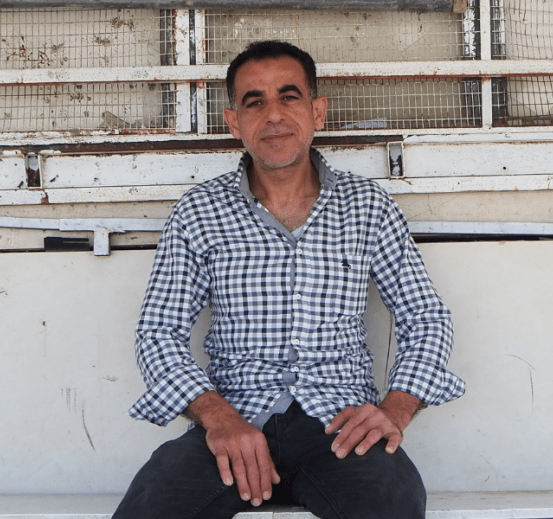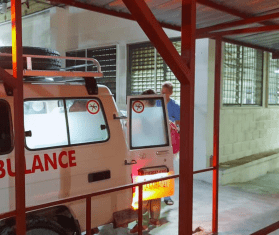There are many reasons that people leave home, including war, conflict, persecution, and natural disasters. Those migrating with chronic diseases like diabetes, however, face additional risks when trying to reach safety.
Diabetes ranks among the top 10 causes of death globally and affects over half a billion people worldwide. Over 80 percent of those affected live in low- and middle-income countries, many in the more than 70 countries where Doctors Without Borders/Médecins Sans Frontières (MSF) works.

Insulin pens and newer diabetes medicines can simplify treatment and reduce complications for people with diabetes. While these tools are widely available in high-income countries, access in low- and middle-income countries and humanitarian settings is extremely limited, due primarily to their higher prices.
Below, three people who now reside in Athens share their stories of migrating while managing diabetes. Insulin pens are easier to transport and administer compared to insulin in vials that is injected with syringes, which is especially important in challenging, humanitarian settings including during migration.
This article contains references to domestic violence and physical abuse.
Amina*
My son, Ehsen*, was 7 years old when I first noticed changes in him. He started wetting the bed, which he had never done before, and his appetite increased. I immediately took him to a doctor, and he was diagnosed with Type I diabetes and provided with insulin injections to manage his condition.
In the beginning, insulin pens—which are much easier to use—were not widely available in Iraq, so [we] had to use injections with an insulin syringe and vial), and I had to inject him myself. It caused me great pain to inject my child, especially since he was so young and sometimes cried. Many times, I cried before he did.
After his diagnosis, I brought Ehsen’s medical records to his school to inform them of his diabetes and ensure he would be properly cared for ... but the principal told me they would not be able to care for him, and he was forced to drop out of school.
I felt deep sadness and anguish for my child....His hospital visits were frequent and numerous.

Ghassan Fakhri Jabar
I was a simple man, a government employee in Gaza. My two sons left for Germany and four years later, I decided we should all leave Gaza and go there to support them. I’d been diagnosed with diabetes around 15 years earlier, and was receiving insulin in vials regularly from UNWRA [the United Nations Relief and Works Agency] for free. My life was in order and my illness controlled. When I told UNWRA that I was planning to leave Gaza and travel to Germany, they gave me a two-month supply of insulin in vials with syringes to take with me.
In all there were 13 of us, traveling together. I sold my car, put my financial affairs in order, and we left Gaza through the Rafah crossing, and then by bus to Cairo airport, and flew to an airport in Türkiye.
When we got to Türkiye, we planned to travel to Greece together, but I didn’t have enough money. So I sent my youngest children and my married children ahead of us on to Greece. My wife, daughter, and I remained behind. We didn’t know it would take us eight months and 15 attempts before we would complete the journey to Greece.

Anis
I was forced to leave Syria and lost everything I owned in the war. We were under siege, and we did not have any food. I had a newborn baby. We decided to leave Syria and faced many difficulties before we could get to Türkiye. We finally arrived in Mersin [on the southern coast of Türkiye] and, since we had no more money, we stayed there.
When we first arrived we had nowhere to stay, and over time we met people who helped us secure shelter. Then, finally we started working and I was able to rent a house and begin a new chapter. Unfortunately, after a short time, the landlord threw us out. That’s the time that I started developing symptoms. The feeling was indescribable, a feeling of deep fatigue and sadness. I felt body tremors, and my weight began to decrease sharply.
I went to a doctor who told me I had to take insulin immediately because my blood sugar level was very high. So, I bought some insulin and started injecting it. After that I consulted another doctor who told me I needed a device to measure blood sugar and should take my insulin doses based on that.





